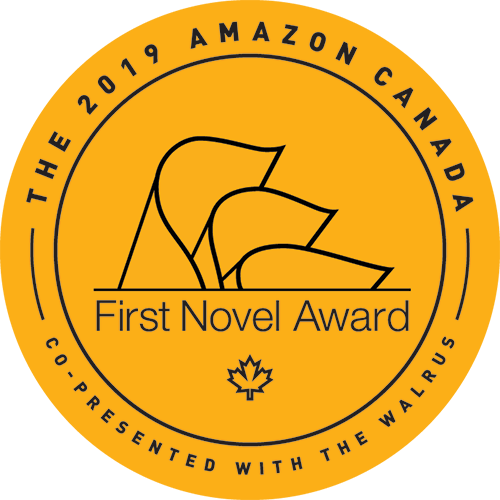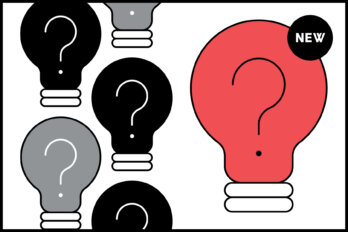 That night is like a dream to me now. I didn’t understand its importance when it was happening. My father shakes me awake and pulls me out of bed. The house is engulfed in darkness and eerily sad. He takes my hand and leads me through. I catch a glimpse of the chair by the window in the light of the moon—I see my father rock me in his lap, reading aloud from Dr. Seuss, teaching me English from Green Eggs and Ham. We step out through the back door from the kitchen, and I turn to see my mother cooking kibbeh, mixing bright spices into minced meat and humming some longing and beautiful old song, a wordless call to prayer. The dream becomes a nightmare. My mother sobs in the back seat of the car, between my brother and me, crossing the border into Jordan. I look out the window as the sun first appears, glaring through the haze. It is the only home that we have ever known. An emptiness comes over me, a fear of missing pieces lost along the way. I can’t help worrying that they will never be replaced.
That night is like a dream to me now. I didn’t understand its importance when it was happening. My father shakes me awake and pulls me out of bed. The house is engulfed in darkness and eerily sad. He takes my hand and leads me through. I catch a glimpse of the chair by the window in the light of the moon—I see my father rock me in his lap, reading aloud from Dr. Seuss, teaching me English from Green Eggs and Ham. We step out through the back door from the kitchen, and I turn to see my mother cooking kibbeh, mixing bright spices into minced meat and humming some longing and beautiful old song, a wordless call to prayer. The dream becomes a nightmare. My mother sobs in the back seat of the car, between my brother and me, crossing the border into Jordan. I look out the window as the sun first appears, glaring through the haze. It is the only home that we have ever known. An emptiness comes over me, a fear of missing pieces lost along the way. I can’t help worrying that they will never be replaced.
It’s 5 a.m. and I have school in three hours. I got out of going the past three days, claiming I needed more time to adjust. I’m truthfully just scared to death. We are on an island on the West Coast of Canada, which they told us was a safe and beautiful place. Since my father and I are the only ones who speak English, we must constantly translate for my mother and brother. They say my brother will need to learn fast if he wants to make friends at school. Most eleven-year-olds don’t know Arabic here. My mother is constantly cleaning to keep busy. Our new townhouse is tiny but immaculate. I can see her sadness in the shine of kitchen tile or in crystal-clear reflections in the mirror.
“Get up, Haya!” my father exclaims. “You have to be at your bus stop in fifteen minutes.”
“I feel like I’m coming down with something,” I croak. “A fever.”
“Just one day, please—just to see how it is.”
I sink deeper into my covers.
“We’re all doing things we don’t want to. Do you want to know what I’m doing today? They are interviewing me to work as a custodian—someone who will clean the mall at night when everybody else goes home to sleep. Do you think I want to do that?”
I look at my father closely, at the deep purple circles under his eyes. I begin to feel ashamed for adding to his burdens.
“Okay,” I tell him, springing to my feet. His eyes light up for a second, then his phone begins to ring and he is pulled back down. He kisses me on the forehead before leaving the room.
I tell myself to just keep moving, don’t overthink anything. I sprint to the end of my street as the bus pulls up. I find it difficult to breathe. At the top of the steps, I look out at everybody staring back, more blond hair than I have ever seen before. It’s as if they have never seen someone wear a hijab. Their gaze is not quite glaring, but appraising. I am able to manage a nervous smile, lurching to the closest empty seat that I can see.
The bus ride feels like hours, but we eventually arrive. They told us about this school—close to our house and with an amazing arts program. My parents told them it would be perfect for me, because of how much I enjoy to paint. I take a few wandering steps when I am greeted by a short, brown-haired girl.
“Hi! I’m Leah,” she says, smiling with her whole face. “I’ll be showing you around!”
I smile back but don’t reply. I’ve come to understand I have a pretty strong accent. It seems easier and less stressful to nod.
“We will start with a tour of the whole school, and then I’ll show you to your first class—sound good?” I nod again. We walk from one room to another as she explains each class and its teacher. At first, I try to pay attention, but after five or six classrooms, I zone out and watch students walk the halls. I wonder if I’ll make friends and who they will be. Right now, I feel more like a piece of art, one that people look at and discuss but never really take the time to get to know.
As the day drags on, all I want to do is crawl back into bed. Coming down the stairs, I pass two girls laughing so hard they don’t even notice me. A solemn smile plays across my face as I remember Amena, my best friend, someone I used to tell everything. Teachers were always getting mad at us for making each other laugh in class. Now I don’t know if I will ever see her again. I feel myself drawn further and further away.
At the end of the day, I find the bus back. I look out as large raindrops pound against the window. My mind wanders back beyond Amena. I can almost taste our mothers’ fattoush, the sumac, tomatoes, and lemon juice. Afterwards, we would zigzag through the market looking for awama, watching the dough rolled into small balls, fried to a deep brown, and drenched in thick, sweet honey. The bus stops. I gather my things and set out into the rain, the sweetness washed from my mind.
At home I find my father, once more on the phone, this time with a smile on his face.
“Haya!” He exclaims, hanging up. “They’ve found me a position at the hardware store!”
I give him the biggest smile I can muster. Back home, he was an architect. He went to school for years and worked half his life for that title. Here, he’d have to do it all again. But today, he has a job, and we have to be happy for that. He insists we celebrate and asks my mother to make his favourite—ruz ib haleeb—rice pudding. He says it won’t taste the same as back home but that we must try anyway so as to keep together something of that place.
I help my mother make the dish. We combine the rice, milk, and sugar in a large saucepan and let it simmer until smooth and thick. I look up at my mother while she stirs, a quiet tune barely escaping her lips. I don’t want to make her self-conscious, so I busy myself washing dishes. I call my brother over to dry, and he rehearses phrases in English to me, each time faster and more confident:
“I went to the park today.”
“I went to the park today.”
“I went to the park today.”
My mother offers us the spoon to lick. When dessert has cooled, we enjoy it together on the couch, laughing over something we find on TV called The Bachelor—something so foreign it hardly seems real. Afterwards, we say good night.
I wake up to the chirping of birds, ones they told us were called robins: deep red breasts, dark brown wings, and little yellow beaks. My family complains about the noise over breakfast, but I think it’s one of the prettiest sounds I’ve ever heard.
Leah meets me in front of the school again.
“Good morning, Haya!” she calls out cheerfully.
“Good morning!” blurts out of my mouth, when I had only planned to nod. Leah beams.
“I want to show you to the art room today—I can’t believe I forgot yesterday. It’s my favourite class, and I have a feeling you will love it too.”
We make our way to the art room, and I let out a breath as we enter, realizing there are only three students and they haven’t even noticed us come in. Leah brings me over to a desk slightly bigger than the rest, where a middle-aged woman with frizzy red hair sits with her legs crossed sketching something in a thick notebook.
“Mrs. Adams, this is Haya.”
“Haya!” she says as if we are long-lost friends. “I have been wanting to meet you! I’ve been told that you are quite the artist. Do you like anything in particular?”
“Painting,” I say without a second thought
“Perfect! Let me show you our supplies and get you set up—then you can drop in whenever you want!”
I smile at her, which seems to make her happy, and she returns to her desk. I look down at the paint in front of me, and something takes over. I find myself wetting the brush and going for the red before I even know what to paint. I feel the strokes course through me. My brush dips into the brown. I eventually lose track of time, but no one tells me to stop, so I keep painting. I paint to forget everything. I paint to remember everything. I paint my pain, and I paint my happiness. It isn’t until I feel a hand on my shoulder that I realize tears are streaming down my face and have made wet spots on the page, blurring the paint.
“Haya, are you all right?” I look up to see Mrs. Adams looking sadly down at me. I dip my brush one last time into the yellow. The canvas seems to come to life, and I can almost hear it chirping up at me, as if in encouragement.
“Yes, Mrs. Adams. I think I am going to be.”




